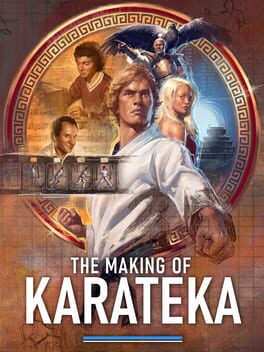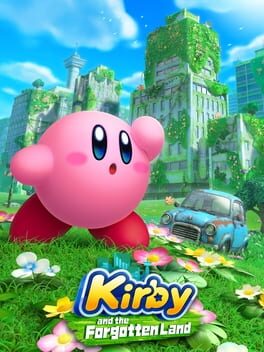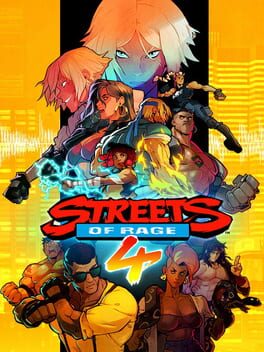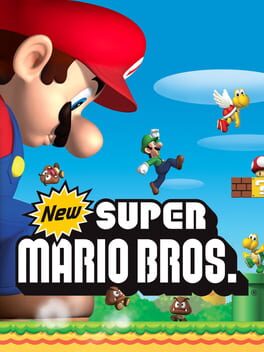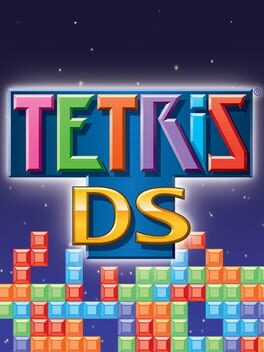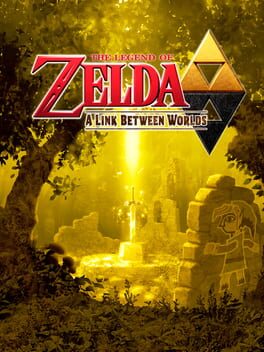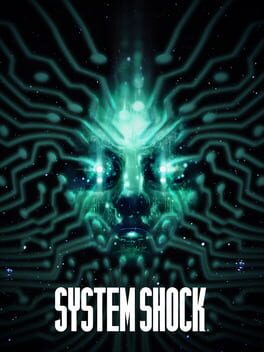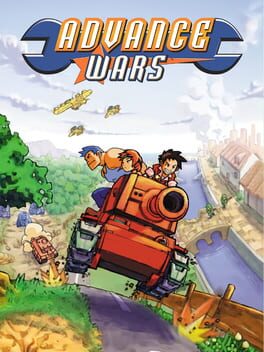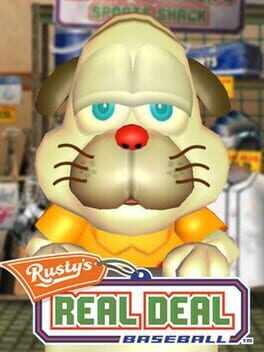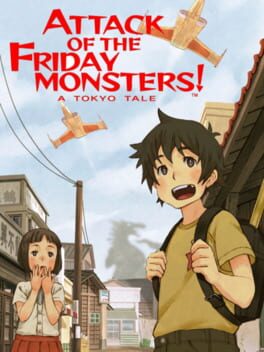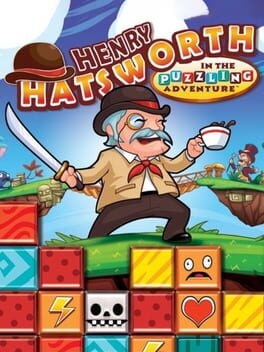big_douglas
Decent presentation of the history of the game, using the clean and simple UI you move along a timeline, getting information and images/videos you can scrutinize to your liking. At any time you can play the included games, though each included game is presented appropriately along the timeline as it becomes relevant.
Beyond the inclusion of the Apple II original version of the game, the contemporary Commodore and Atari ports are also included and fully-featured. Playable prototype versions are also included, as well as brand-new remakes of the two main games in the documentary.
This is the first entry in the developer’s “Golden Masters” series, which I’ll be keeping an eye on in the future. I do hope that the production quality of the interviews will be better in the future, however.
Beyond the inclusion of the Apple II original version of the game, the contemporary Commodore and Atari ports are also included and fully-featured. Playable prototype versions are also included, as well as brand-new remakes of the two main games in the documentary.
This is the first entry in the developer’s “Golden Masters” series, which I’ll be keeping an eye on in the future. I do hope that the production quality of the interviews will be better in the future, however.
The visual design of the game, including the animations, is above and beyond. There’s a lot of variation in the environments and settings, and the great music and renewed sound effect designs make the experience really fresh and engaging.
Usually the new powers and mechanics work out for the level designs, but there are a good few instances throughout where I came away from a level pretty underwhelmed or just didn’t really get what they were going for. I often didn’t feel really compelled to get the collectibles, which I normally do in these games, maybe largely because rather than feeling satisfying to acquire they seem like potentially more trouble than they’re worth. Which is a shame because the Wonder Seeds often had a pretty fun gimmick to them.
The final boss fight is fun but it would have been beneficial to the game overall if the boss fights were more interesting and involved like that one.
Usually the new powers and mechanics work out for the level designs, but there are a good few instances throughout where I came away from a level pretty underwhelmed or just didn’t really get what they were going for. I often didn’t feel really compelled to get the collectibles, which I normally do in these games, maybe largely because rather than feeling satisfying to acquire they seem like potentially more trouble than they’re worth. Which is a shame because the Wonder Seeds often had a pretty fun gimmick to them.
The final boss fight is fun but it would have been beneficial to the game overall if the boss fights were more interesting and involved like that one.
2020
A very impressive game in terms of its scope and the robust nature of its systems, after beating it I'm already thinking about what I'd like to do in future playthroughs.
I will say though that as a person who is pretty directly the target audience for this-- I grew up playing the original Baldur's Gate and have played both D:OS games, as well as having played a campaign of D&D 5e before, I did find some of the mechanisms of this game kind of hard to parse, such as how many times or when you can long rest before it becomes a problem for some story event.
I also think the ending section of the game is disappointing in terms of the polish and quality to its production. It's the grandest section of the game and feels like it didn't get enough effort and care, especially due to how sparse the audio design is. Also got frequent visual bugs during it. I do think the final confrontations are satisfying but can't say I'm not disappointed that such a high quality product leaves its endings like it does.
I will say though that as a person who is pretty directly the target audience for this-- I grew up playing the original Baldur's Gate and have played both D:OS games, as well as having played a campaign of D&D 5e before, I did find some of the mechanisms of this game kind of hard to parse, such as how many times or when you can long rest before it becomes a problem for some story event.
I also think the ending section of the game is disappointing in terms of the polish and quality to its production. It's the grandest section of the game and feels like it didn't get enough effort and care, especially due to how sparse the audio design is. Also got frequent visual bugs during it. I do think the final confrontations are satisfying but can't say I'm not disappointed that such a high quality product leaves its endings like it does.
Masterful level concepts and design, especially once you're past the game's first Natural Plains region. It's a simple enough challenge to be able to just complete each level relatively thoroughly on the first try in a beeline through the main missions, with the occasional quick detour to the challenge stages for some upgrade materials. But the secrets and additional challenges make for a very satisfying way to keep engaging with the levels.
Within each region there's a theme to the levels, with genuinely unpredictable variation between them. When you get to an ice region in a game you usually can pretty accurately picture what sort of visual design and challenges you'll be running into-- here however, you're dropped into a genuinely beautiful abandoned European winter town, and advance to a destroyed subway station. Each region has this type of ambition to impress both visually and in terms of gameplay. The sound design and music are really great as well and elevate the experience, the amusement park level especially has som great tunes.
The final sequence of the game is something you'll have to experience for yourself, all I'll say is that while fighting through it I was dumbstruck that it was all part of a Kirby game. The post-game content is also cool, something of a total remix of sections of previous levels mashed together and alternate boss battle with much more challenge.
I loved playing this game with my two-year-old son sitting with me, who encouraged me to go back and fight Gorimondo probably a hundred times. Couldn't have done it without him!
Within each region there's a theme to the levels, with genuinely unpredictable variation between them. When you get to an ice region in a game you usually can pretty accurately picture what sort of visual design and challenges you'll be running into-- here however, you're dropped into a genuinely beautiful abandoned European winter town, and advance to a destroyed subway station. Each region has this type of ambition to impress both visually and in terms of gameplay. The sound design and music are really great as well and elevate the experience, the amusement park level especially has som great tunes.
The final sequence of the game is something you'll have to experience for yourself, all I'll say is that while fighting through it I was dumbstruck that it was all part of a Kirby game. The post-game content is also cool, something of a total remix of sections of previous levels mashed together and alternate boss battle with much more challenge.
I loved playing this game with my two-year-old son sitting with me, who encouraged me to go back and fight Gorimondo probably a hundred times. Couldn't have done it without him!
2020
The presentation is outstanding, the music is awesome and the art style looks amazing, especially on the Switch handheld screen. The gameplay feels very fine-tuned and responsive, the animations are great as well. All the characters have fun playstyles and it all amounts to one of the few competitive games that I feel compelled to spend time improving my skills in.
The difficulty spikes can be kind of brutal for someone like me who is bad at reflex-heavy games, and even though I got to the last stage of the last boss multiple times solo, I had to eventually give up or risk burning out on the game. This is now fully in my rotation of go-to Switch games when I have a half hour on the couch, it's incredible!
The difficulty spikes can be kind of brutal for someone like me who is bad at reflex-heavy games, and even though I got to the last stage of the last boss multiple times solo, I had to eventually give up or risk burning out on the game. This is now fully in my rotation of go-to Switch games when I have a half hour on the couch, it's incredible!
Completely alright SMB entry, plays great on the DS and is satisfying. Though with all the “New” series games I sooner or later start wondering why I don’t just play one of the great NES or SNES entries instead. Mainly because the music is a little underwhelming here and the movement of Mario feels a little too slippery in moments.
2006
An confident entry in the Zelda series. As a sequel to A Link to the Past it takes that familiar setting and changes the central progression mechanic, giving the player access to rent (and eventually purchase) all of the necessary dungeon items. The result is that the player is, and feels, very free to explore any which way they feel. The rewards for going a little extra further also feel appropriately rewarding.
I'm sure the game will escape its 3DS confines some day, but man is it a nice use of the 3D effect.
I'm sure the game will escape its 3DS confines some day, but man is it a nice use of the 3D effect.
2006
The most immediately apparent quality of the games in the Mother series is that they exist in conversation with the JRPG genre they belong to. The games are anti-RPGs as often as they are celebrations of RPGs. They break with undoubtable vision and conviction from the genre's most tired conventions while leaning into some of its worst tendencies. Shigesato Itoi triumphs in using the genre as a vehicle to communicate themes and humor and emotions which are nearly indescribable in their uniquely human character. The games also have the tendency to be opaque and inscrutable in their systems beyond what some of the more frustrating in the genre would even dare. They are soundly, squarely JRPGs, and yet unlike anything else.
The incredible production values and direction make this game a beautiful and compelling experience. The sound design and music are nothing short of the best of the best you'll find. The pixel art is incredibly crisp and beautiful, the animations meticulous and precise. There is a large variety of environments and locations that exhaust the color palette and make for an unpredictable and exciting experience just going through the story. Even the technical method used for displaying dialogue text contributes a ton in delivering memorable and impactful lines through otherwise simple plain text, namely in how parts of a sentence or whole lines can be doled out in a prescribed way for maximum effect.
The combat system is simplified and has other improvements over the one in Mother 2. A new addition is that using regular attacks is something of a rhythm mini-game where you can deal additional damage as long as you continue to press the A button on the beat. This is a genius and fun idea in theory, in practice there are long stretches of the game where I found myself (a hobbyist musician with some semblance of a sense of rhythm and timing) inexplicably unable to get the combo going for more than 3 or 4 hits on a lot of enemies. Putting enemies to sleep gives you the ability to hear the pulse you should be pressing the button to, but that never seemed to help the matter. Whatever the situation is, something about the mechanic seemed off, and I think simplifying it a bit more and being able to get the combo off easier would have done a world of good for that system.
One final note is that the very last thing you do in the game seems it can be easily missed, which is one of the aspects I mentioned earlier where these games tend to almost cruelly try to distance their most heartfelt secrets from the people who would clearly love them most. What is this fear of intimacy the creator has? Mother 2 notoriously has success in its incredible final battle hinge on a mechanic that anyone who hadn't bought the strategy guide could easily miss and give up on regardless of how fully sold on the game they are. I have nothing against quirks in design but sometimes these games take their games with the player a little too far.
Despite any criticism, Mother 3 is an unforgettable, singular experience. It's a game that delivers on the promise video games have to be art and culture, to tell stories which contain real human soul. You have to take these experiences where you can get them.
Thanks are of course always due to the fans who put an enormous effort into the translation that allows more people to experience this beautiful game.
The incredible production values and direction make this game a beautiful and compelling experience. The sound design and music are nothing short of the best of the best you'll find. The pixel art is incredibly crisp and beautiful, the animations meticulous and precise. There is a large variety of environments and locations that exhaust the color palette and make for an unpredictable and exciting experience just going through the story. Even the technical method used for displaying dialogue text contributes a ton in delivering memorable and impactful lines through otherwise simple plain text, namely in how parts of a sentence or whole lines can be doled out in a prescribed way for maximum effect.
The combat system is simplified and has other improvements over the one in Mother 2. A new addition is that using regular attacks is something of a rhythm mini-game where you can deal additional damage as long as you continue to press the A button on the beat. This is a genius and fun idea in theory, in practice there are long stretches of the game where I found myself (a hobbyist musician with some semblance of a sense of rhythm and timing) inexplicably unable to get the combo going for more than 3 or 4 hits on a lot of enemies. Putting enemies to sleep gives you the ability to hear the pulse you should be pressing the button to, but that never seemed to help the matter. Whatever the situation is, something about the mechanic seemed off, and I think simplifying it a bit more and being able to get the combo off easier would have done a world of good for that system.
One final note is that the very last thing you do in the game seems it can be easily missed, which is one of the aspects I mentioned earlier where these games tend to almost cruelly try to distance their most heartfelt secrets from the people who would clearly love them most. What is this fear of intimacy the creator has? Mother 2 notoriously has success in its incredible final battle hinge on a mechanic that anyone who hadn't bought the strategy guide could easily miss and give up on regardless of how fully sold on the game they are. I have nothing against quirks in design but sometimes these games take their games with the player a little too far.
Despite any criticism, Mother 3 is an unforgettable, singular experience. It's a game that delivers on the promise video games have to be art and culture, to tell stories which contain real human soul. You have to take these experiences where you can get them.
Thanks are of course always due to the fans who put an enormous effort into the translation that allows more people to experience this beautiful game.
2023
System Shock is a game that immerses the player by setting them loose in a space station with little idea of what is going on or what to do. Because the player must explore the station in order to gain that information, and since the station has been overrun with horrible cyborg mutants, there is a real tension and physicality to the player's interaction with, and understanding of, the game world. There's no glowing marker telling you where to go next, and as such the player must learn the world intimately and keep their eyes open and mind engaged, likely even keeping a notebook while playing.
The System Shock Remake is visually an incredible game, not only doing justice to the original game's design but also just being one of the most stunningly cool and beautiful looking games in modern times. The sound design and music have gotten mixed reception but I personally really liked it and thought the music was great.
In terms of gameplay an approach was taken that kept a lot of the essence of the original game while updating it with what 30 years of game design development in the industry could aid the aging game with. The inventory system is snappy and intuitive, with additional options added in the remake to lighten some headaches and make once useless items more useful.
The story is compelling and the method in which it is told has been made almost a standard for story-driven isolated experiences ever since.
While my enjoyment of the game had its ups and downs throughout, in many of my play sessions I found myself having a total blast and thinking to myself "I am LOVING this", doesn't that deserve a high rating?
The System Shock Remake is visually an incredible game, not only doing justice to the original game's design but also just being one of the most stunningly cool and beautiful looking games in modern times. The sound design and music have gotten mixed reception but I personally really liked it and thought the music was great.
In terms of gameplay an approach was taken that kept a lot of the essence of the original game while updating it with what 30 years of game design development in the industry could aid the aging game with. The inventory system is snappy and intuitive, with additional options added in the remake to lighten some headaches and make once useless items more useful.
The story is compelling and the method in which it is told has been made almost a standard for story-driven isolated experiences ever since.
While my enjoyment of the game had its ups and downs throughout, in many of my play sessions I found myself having a total blast and thinking to myself "I am LOVING this", doesn't that deserve a high rating?
2001
I was enraptured by the gameplay the whole way through the campaign, even if the storyline and the way it was told was more cutesy than interesting. There’s a good bit of variation throughout but I often felt like there wasn’t much of a logical progression in mechanics and scenarios past a certain point.
The visual style of the artwork is incredible as well, every pixel available is utilized to make the experience engrossing. The constant changes between the minimalist and beautiful world map to the close ups of the combat featuring detailed environments and unique unit sprites for each faction make the game visually interesting. The music is however pretty repetitive after a while, though there’s nothing wrong with the pieces themselves, there just could have been maybe variations on themes now and then.
The War Room mode also offers select challenges of varying nature, which is fun for those who want even more tactics. Once beating the game you can also purchase the Advance Campaign from the in-game shop and play a much more challenging version of the campaign mode, I tried it a bit but don’t think I’m at the level of skill it requires yet.
The visual style of the artwork is incredible as well, every pixel available is utilized to make the experience engrossing. The constant changes between the minimalist and beautiful world map to the close ups of the combat featuring detailed environments and unique unit sprites for each faction make the game visually interesting. The music is however pretty repetitive after a while, though there’s nothing wrong with the pieces themselves, there just could have been maybe variations on themes now and then.
The War Room mode also offers select challenges of varying nature, which is fun for those who want even more tactics. Once beating the game you can also purchase the Advance Campaign from the in-game shop and play a much more challenging version of the campaign mode, I tried it a bit but don’t think I’m at the level of skill it requires yet.
A fun and funny free-to-play title that uses its humor and charm to get the player to pay real money for the games in it. The mini games and challenges vary in fun factor but I had a good time with the first two at least, which also make good use of the 3D funtionality in helping determine the speed and trajectory of the ball.
Henry Hatsworth has a lot going for it, from the lighthearted goofiness of its plot and characters to its unique gameplay. The game has the player freely alternating between the platforming adventure on the top screen and the deceptively simple match-three puzzle game on the lower screen, the events in both affecting one another. Your aim is to get Henry in one piece across the dangerous stages in pursuit of a fabled suit with magical abilities, each collected piece of which provides a new game mechanic necessary for the road ahead.
I found the bosses to be more challenging and well designed than I expected, while the platforming sections were nothing to write home about at best, at worst sort of frustrating in moments.
It’s a good execution of its concept all told, and one of the games that took the hardware most seriously in its core design.
I found the bosses to be more challenging and well designed than I expected, while the platforming sections were nothing to write home about at best, at worst sort of frustrating in moments.
It’s a good execution of its concept all told, and one of the games that took the hardware most seriously in its core design.
2022
This review contains spoilers
There was a point maybe 40 hours in when I was tiring of advancing through the game, where exploration was starting to feel like a rote exercise of content that seemed sort of copy/pasted around the map. You see a type of thing, you know what's going to be there and roughly what to expect. Even beelining the main quest seemed really daunting because I doubted I would be able to advance quickly enough without having to grind levels on the side, which would require doing what I was already growing weary of. I was standing in eastern part of Limgrave, looking at my recently almost completely explored map of nearby areas, daunted by the task of wandering east, and staring down the barrel of god-knows-how-much lie beyond the recently conquered Stormveil Castle.
The turning point came when I got the ability to respec, and started looking into builds that could carry me through the end of the game. Ironically, trying to find a way to expedite my progress in the game I was starting to get sick of playing resulted in me actually loving the game and spending much more time with it than I otherwise would have.
An aspect of modern gaming that I don't often see brought up is the way that an active internet connection affects design. These "Souls" games or whatever you want to call them are, by design, made with the assumption of being actively connected to the internet. They know that they can purposefully leave things left unsaid or make quest progression absurdly obtuse and hide extremely useful items and equipment in the most unseeming or backwards places because they know that people playing these games look this stuff up. Sure it's easy to imagine some superman who comes across everything naturally, exploring every nook of the Lands Between with a beautiful moleskin for note-taking on their lap, but most people are going to for whatever reason look one thing up, see the detail for another thing that would be almost impossible to come across in a desired manner organically, and understand that they're not losing out on anything at all by reading a wiki for something so minor.
In that way I felt like I was actually playing the game as intended. Seeing what I was missing in order to make a build that could allow me to play in a way I felt rewarding turned the game into goal-oriented exploring which was in no way less challenging or less rewarding than coming upon it naturally. Once I had made my desired build I just kept looking up equipment that could improve it further down the line, and acquiring that so I would have it when my level was high enough. In the process of doing that I would uncover new and interesting areas that I would explore organically just as I had at the start of the game.
The ability to respec in the game combined with starting out as the Wretch like I had, was that unlike the previous Fromsoft game I had played (DS:R) it means that not only can I change up how I play the game whenever I want, it also means that acquiring items is always potentially relevant to future builds and expanding ways you can enjoy the game. NG+ also gets a new lease in that sense. That detail makes exploration much more worth the while.
Looking forward to the DLC, putting the game down until then.
The turning point came when I got the ability to respec, and started looking into builds that could carry me through the end of the game. Ironically, trying to find a way to expedite my progress in the game I was starting to get sick of playing resulted in me actually loving the game and spending much more time with it than I otherwise would have.
An aspect of modern gaming that I don't often see brought up is the way that an active internet connection affects design. These "Souls" games or whatever you want to call them are, by design, made with the assumption of being actively connected to the internet. They know that they can purposefully leave things left unsaid or make quest progression absurdly obtuse and hide extremely useful items and equipment in the most unseeming or backwards places because they know that people playing these games look this stuff up. Sure it's easy to imagine some superman who comes across everything naturally, exploring every nook of the Lands Between with a beautiful moleskin for note-taking on their lap, but most people are going to for whatever reason look one thing up, see the detail for another thing that would be almost impossible to come across in a desired manner organically, and understand that they're not losing out on anything at all by reading a wiki for something so minor.
In that way I felt like I was actually playing the game as intended. Seeing what I was missing in order to make a build that could allow me to play in a way I felt rewarding turned the game into goal-oriented exploring which was in no way less challenging or less rewarding than coming upon it naturally. Once I had made my desired build I just kept looking up equipment that could improve it further down the line, and acquiring that so I would have it when my level was high enough. In the process of doing that I would uncover new and interesting areas that I would explore organically just as I had at the start of the game.
The ability to respec in the game combined with starting out as the Wretch like I had, was that unlike the previous Fromsoft game I had played (DS:R) it means that not only can I change up how I play the game whenever I want, it also means that acquiring items is always potentially relevant to future builds and expanding ways you can enjoy the game. NG+ also gets a new lease in that sense. That detail makes exploration much more worth the while.
Looking forward to the DLC, putting the game down until then.
